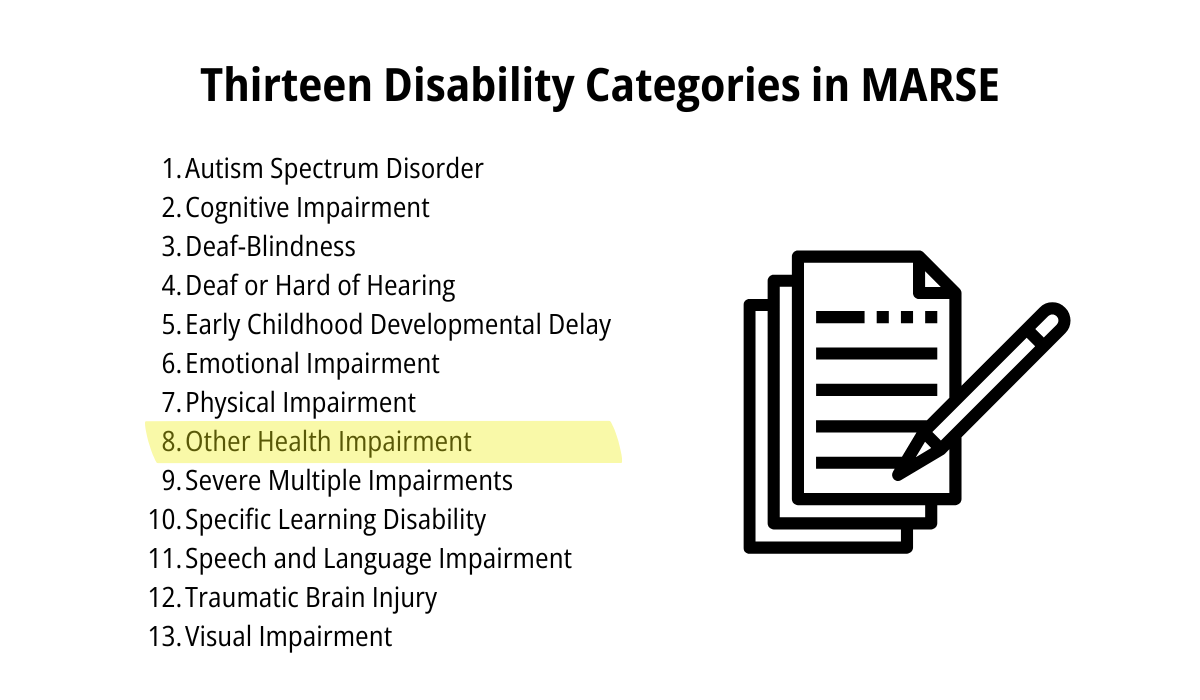Eligibility for Special Education under designation of Other Health Impaired
The Michigan Administrative Rules for Special Education (MARSE) define eligibility for special education services within thirteen categories of disability.
- MARSE R 340.1709 Other Health Impairment


